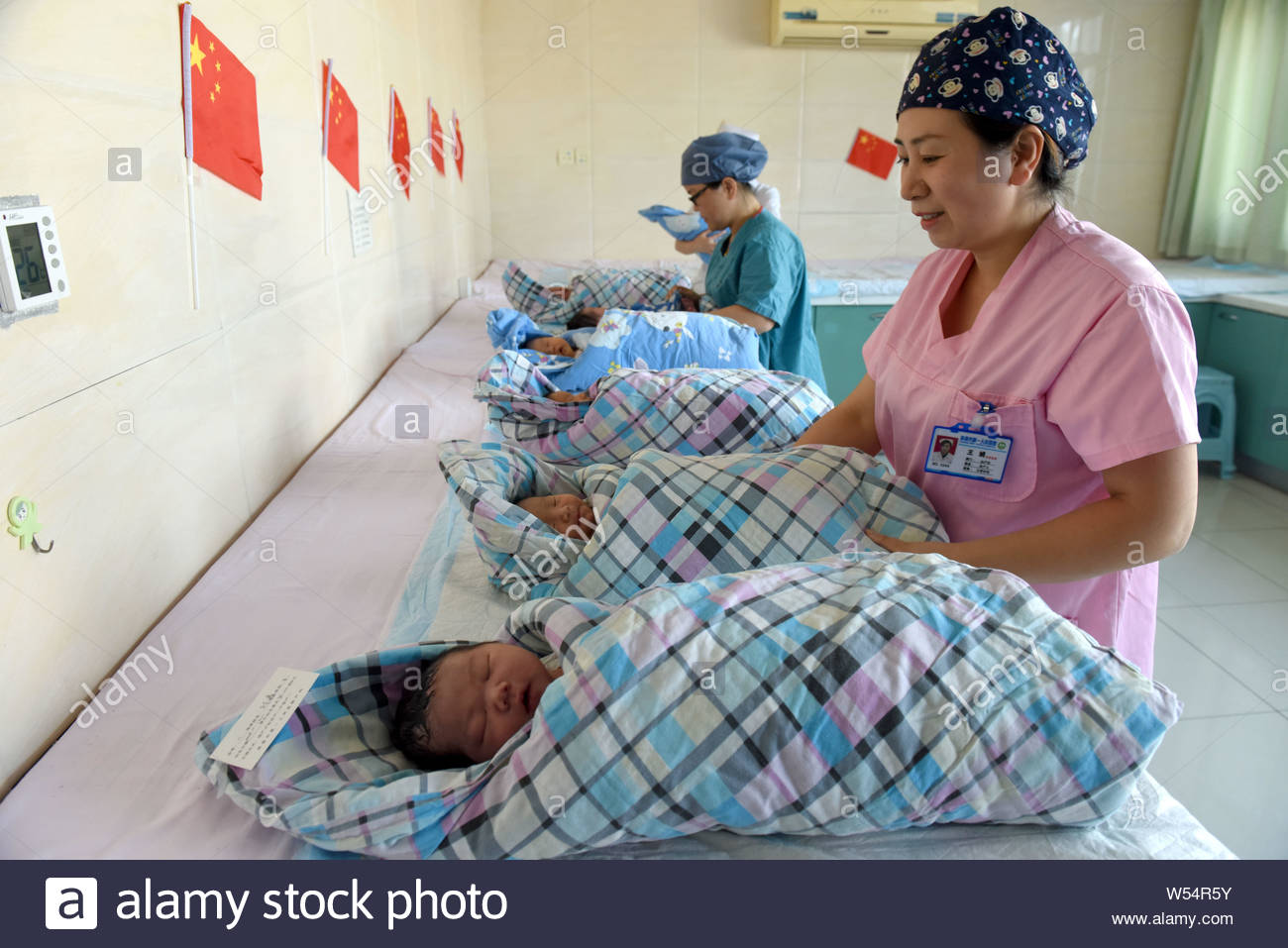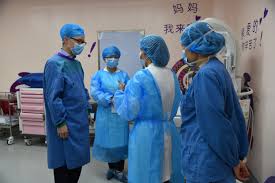Shanghai City Maternity Hospital
 283
283
 2020-11-11 21:24:57
2020-11-11 21:24:57
Company address
Location:
China, Sichuan , Sichuan North Road, Hongkou District, الصين
Service types
Assistenza sanitaria
Salute dei bambini
Odontoiatria pediatrica
Psichiatria e psicologia pediatrica
Logopedia pediatrica
Assistenza pediatrica
Odontoiatrico
Neonatologia
Chirurgia pediatrica
Dietologia e nutrizione pediatrica
Endodonzia
Altri servizi odontoiatrici
Malattie infettive dei bambini
Dermatologia pediatrica
Nefrologia pediatrica
Traumatologia & ortopedia pediatrica
Mammalogia pediatrica
About company
Focusing on the key clinical diagnosis and treatment of nasopharyngeal carcinoma (47% of the world), a characteristic tumor with a high incidence in China, Professor Ma Jun relies on Sun Yat-sen University Cancer Center & State Key Laboratory of Oncology in South China, through 35 years of independent innovation and systematic improvement The diagnosis and staging standard of nasopharyngeal cancer avoids misdiagnosis and mistreatment of 30% of patients; the establishment of normal organ protection standards for nasopharyngeal cancer radiotherapy has reduced sequelae by 40%; continuous optimization of the combined mode of radiotherapy and chemotherapy for nasopharyngeal cancer, Reduced the transfer rate by 47%. The research results have increased the survival rate of nasopharyngeal cancer from 60% in the 1990s to 84%, reaching an internationally leading level. It has achieved a leap from “following” to “leading” in clinical diagnosis and treatment and scientific research.Radiotherapy is the main local treatment method for nasopharyngeal carcinoma, and chemotherapy is the main method to reduce the risk of metastasis (which accounts for 70% of deaths). The timing of chemotherapy includes three types: before radiotherapy (induction chemotherapy), during radiotherapy (concurrent chemotherapy), and after radiotherapy (adjuvant chemotherapy). The best chemotherapy beneficiaries, the best timing of chemotherapy and the best chemotherapy drugs all need to be further explored.
1. Through 2 clinical trials, it is proposed that the best time for chemotherapy is "before radiotherapy", which has changed the international diagnosis and treatment path that has been used for 18 years
"Post-radiotherapy chemotherapy" has been recommended by NCCN guidelines in the United States since 1998, but it has been clinically found that about half of the patients cannot complete the program due to serious side effects. In response to this problem, Ma Jun completed a prospective multicenter clinical study of 508 cases of advanced nasopharyngeal carcinoma, which proved for the first time in the world that "post-radiotherapy chemotherapy" not only did not improve the efficacy (3-year survival rate: 86% vs. 84%), on the contrary, serious side effects such as bone marrow suppression and vomiting were increased, and the incidence was as high as 42% (Lancet Oncol, 2012).
"Pre-radiotherapy chemotherapy" is easier to kill micrometastases in theory because of its early application time, but there is no clinical result to confirm it internationally. Ma Jun once again passed the clinical trial. Through 10 years of research, it was found that the addition of three-drug (Docetaxel+cisplatin+fluorouracil) regimen induction chemotherapy before radiotherapy can increase the 3-year tumor-free survival rate from 86% to 92% (Lancet Oncol, 2016). In 2018, the NCCN guidelines adopted the study and upgraded the recommendation level of "induction chemotherapy combined with concurrent radiotherapy" from category III to category IIa, becoming the standard treatment mode for advanced nasopharyngeal carcinoma.
2. Through a clinical trial, it was proposed that the best chemotherapy drug is "gemcitabine + cisplatin dual drug", which has become a new international diagnosis and treatment standard, and promoted and applied worldwide
How to develop a "high-efficiency and low-toxicity" drug combination plan? Ma Jun chose gemcitabine, which has the dual effects of inhibiting DNA synthesis and regulating the immune microenvironment, to replace the highly toxic docetaxel (hematological toxicity) and fluorouracil (gastrointestinal toxicity), and retains cisplatin, which is powerful in killing tumor cells. , Constituted a two-drug chemotherapy regimen of gemcitabine + cisplatin (GP). Through the third multi-center, phase III clinical trial, it was found that the curative effect was better, and the risk of metastasis was reduced by 57%; and the toxicity was lower. The average hospital stay was reduced from 10 days to 3 days, and serious side effects such as diarrhea were reduced by 45%. The two-drug regimen (gemcitabine + cisplatin) new therapy research was published in "New England Medicine (N Engl J Med)". It is the first oncology book with the first and corresponding authors from mainland China. The treatment plan is promoted and applied worldwide .
N Engl J Med's official journal "NEJM Frontiers in Medicine" published a review and pointed out that the study is "the first clinical trial paper published by NEJM and the corresponding authors are all from mainland China in the field of oncology." Professor Vokes, Dean of the Department of Medicine at the University of Chicago, Professor Robert from Harvard University, Professor Colevas from Stanford University, and Professor Hisham from the University of Birmingham in the United Kingdom made high evaluations in "NEJM Frontiers of Medicine". More than 20 companies including Reuters, Xinhua News Agency and China Daily Mainstream media at home and abroad have reported extensively. Professor Ma Jun was invited to report at the 2019 American Society of Clinical Oncology (ASCO) conference and was selected as the only representative of China for the 2019 ASCO Best Research. He also won the only "Chinese Society of Clinical Oncology Annual Achievement Award" that year and won the 2019 " Awarded the “Top Ten Advances in Life Sciences in China”, “Top Ten Technological Advances in Colleges and Universities” and the “Most Valuable Drug Clinical Trial Design Award” by the China Pharmaceutical Innovation Promotion Association. In 2020, the internationally accepted NCCN guidelines adopted the results, and the dual-drug regimen as a “level 1 recommendation” became the preferred treatment regimen in the world. The research has also been adopted by international continuing education projects such as Best of ASCO program, Oncology Education and The Oncology Information Group, and promoted to doctors around the world.
In the past 22 years (1998~2020), the world general guidelines have only 6 adjustments in the treatment of nasopharyngeal cancer, 4 of which are based on Ma Jun’s research results and have made milestone contributions in the history of nasopharyngeal cancer treatment. Based on the above research achievements, Ma Jun published in the journal "Lancet" a systematic review of specific diseases (Seminar, 40 pages) completed by mainland Chinese scholars for the first time since its establishment 200 years ago, which is listed in the field of nasopharyngeal cancer research ESI 1‰ hot paper.
The 2020 CCO keynote lecture venue, come to Huacheng to listen to the "Good Voice of Guangzhou" brought by Professor Ma Jun!





































 Pubblica annuncio
Pubblica annuncio 














